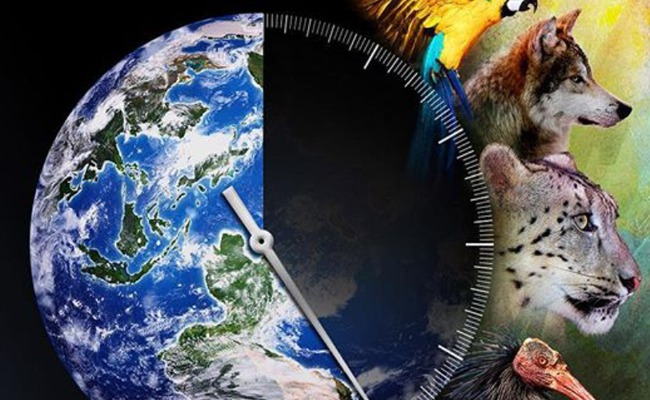Extinction is the extermination of an entity or a group of entity usually a species. The extinction is usually inspected to be the death of the last sole of the species. More than 99% of all the species that ever lived on the earth from the 5 billion species are estimated are died out. Extinction normally occurs when species are decreased due to the environmental forces, evolutionary changes in their members, climate change, pollution, and other human activities. The rate of extinction is changing extensively. In the middle of the 21st century between 30 and 50 percent of species are extant.

Mass Extinctions:Although the extinction is an existent feature on the earth, the fossil record discloses the five large extinctions each included the expiration of a large number of species. These declines in diversity are mentioned as mass extinctions. Mass extinctions are ranked in the descending order of diversity.
Permian extinction: (261.5 million years ago), In premium extinction half of all the families are eliminated, 95% of marine species like corals and 705 of land species like plants and insects.
Ordovician-Silurian extinction: (443.8 million years ago) In this extinction 55 of marine families and 85% of marine species with conodonts and trilobites are suffering greatly.
Cretaceous-Tertiary extinction: (66 million years ago) 80% of animal species like dinosaurs and many plant species are suffering. Many scientists claim that this event was due to comets striking the earth and others maintain that it was due to climate change.
Devonian Extinction: (407.6 million years ago) this extinction contains 15-20% of marine families and 70-80% of all animals. 86% of marine brachiopod species expired including many corals, trilobites and conodonts.
Additionally, the contraption of mass extinction is different from background extinction.
Human-induced extinction:
Many species have been extinct due to hunting, conversion of forests to urban areas, pollution and other destruction due to humans in their natural environment. The current rate of human-induced extinctions is 1000 times greater than the past. Additionally, greenhouse gases also alter the world’s climate due to this expected that many species will migrate towards the pole and up spaces to remain in the same climate in the middle of the 21st century. The study also predicts that if the temperature increased about 7.7⁰C in the ocean temperature then 16% of species will be lost.
Almost one in four mammal species and one in eight bird species were considered at great risk at the beginning of the 21st century and vertebrate populations declined 58% between 1970 and 2010.